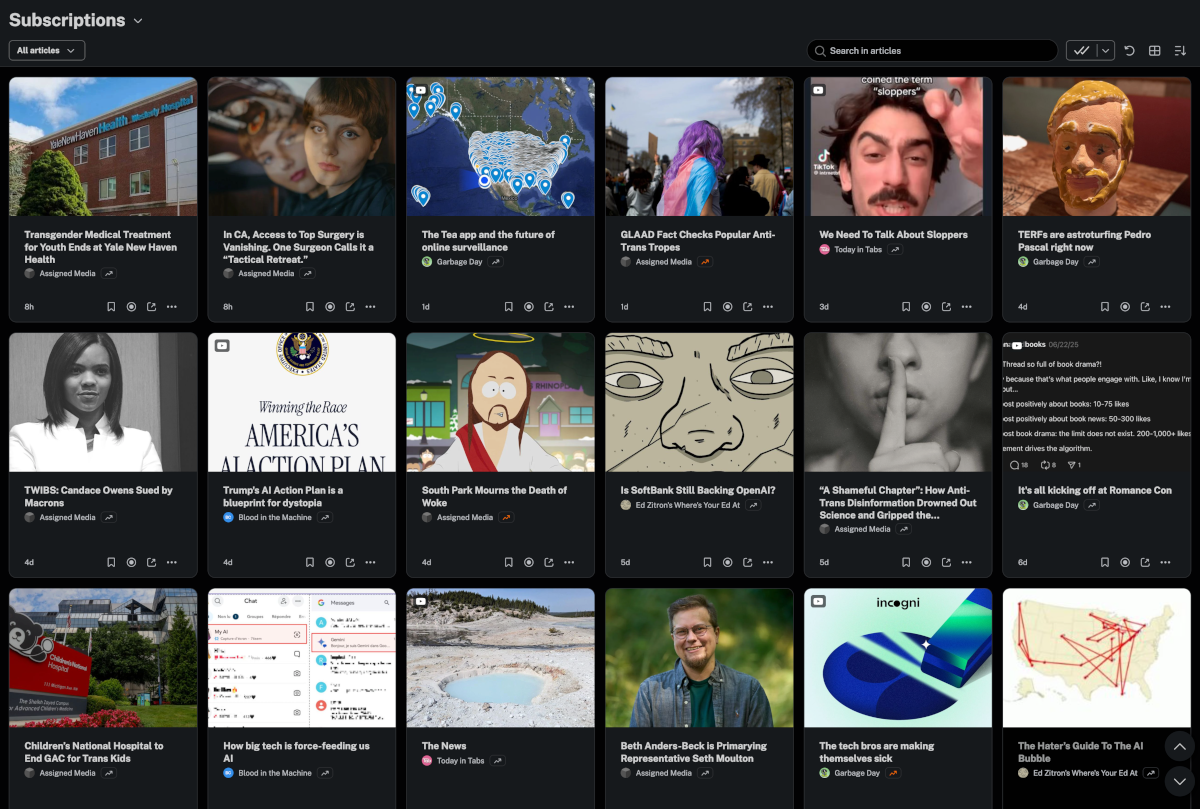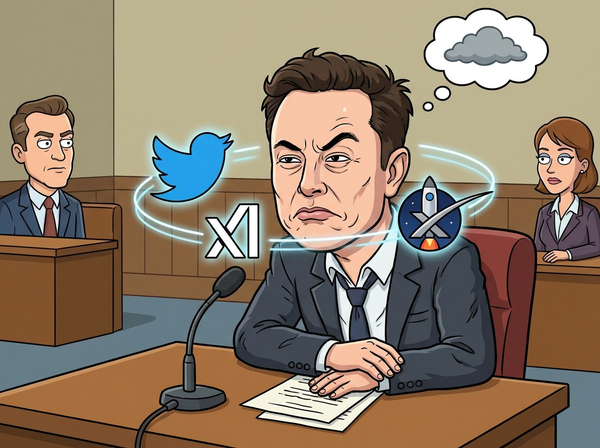The Enshittification of Everything
The migration from news sites as browsing shifts to the newsletter model, this provides a lot more tracking to the sites. Avoid that with an RSS reader.

Well, I am not going to go too deep into this topic, but instead, I will quote liberally from the inestimable Molly White of the Citation Needed newsletter whose usual stomping ground is tracking the lunacy around crypto, and other techie things.
This week though, she writes about how to build a curated news feed for you so that you can avoid the algorithmic apocalypse that has decimated the traffic to media sites that help them keep the lights on.
She writes:
Traffic to news sites from social media platforms like Facebook and Twitter has atrophied as those services limit links to external sites to keep users locked in. Google Search’s excerpts and, more recently, AI overviews have satisfied users’ questions before they click on the article that actually provided the information. Some have abandoned Search altogether for ChatGPT or other chatbot LLMs that summarize journalists’ work with varying degrees of accuracy, often without linking or even mentioning the source.
Perhaps you've noticed the AI overviews that push the slop to the top of search results? Before that there were the "summaries" that often answered the question asked, so that users just accept that answer and do not go read the article.
Because we live in the worst possible world, websites cost money to build, publish and serve, and the only realistic path to earning enough money to keep the lights on is display ads. I know you hate ads, we all do, but it is part of the Faustian bargain we make to not have to pay a million tolls. Until now that is.
But the proliferation of the summaries and the AI generated roll ups are killing traffic, and you are having to work to actually read the source material.
As Molly leads off, large independent sites that used to rely on the socials (Twitter, Facebook, Insta) to draw eyeballs, are facing a cliff of this traffic:
Last week, both The Verge and Wired announced major newsletter strategies. Wired writes of a “traffic apocalypse”, where “platforms on which outlets like Wired used to connect with readers, listeners, and viewers are failing in real time”. The Verge describes “Google Zero”: the moment when the dwindling supply of visitors from Google Search completely dries up.
Instead of being destinations of links, they are flipping the script to a newsletter strategy akin to what Substack began as.
This leads to an avalanche of items hitting your inbox. I mean, I subscribe to nearly 100 different Substacks, and I get mountains of email. I spent a couple of weekends building a filtering strategy to make sense of the onslaught.

Molly is a techie, and this post by her is a strategy to use the lowly RSS feed to curate and improve your life.
But there's another reason to dive in. As she succinctly notes, these inbound emails do track your interactions.
And increasingly, your reading is spying on you in a way a print newspaper never could, with websites tracking when you click a link or scroll down the page, and even email newsletters tracking when you open an issue or visit a link. Apps like Substack collect data about your reading to show you an algorithmic feed, ostensibly to grow the “Substack network” and drive new subscribers to writers hoping to build a following. In practice, these mechanics in turn drive writers to please the algorithms, writing what gets the most clicks and ranks them higher in the recommendation system. Independent thinking and creativity often get sidelined to click-chasing.
And that quip about Substack? That is true. They are adding to their surveillance of your activities to better tailor the algorithm that they use to feed you in the App and on the feed in the "Notes" stream.
Her answer is to use RSS. I will not copy-pasta that, but I will drop the link to her post, and I HIGHLY recommend subscribing to her.
She does an excellent step-by-step tutorial.

Molly doesn't do paywalls, and her paid subscriptions are set your own price. I throw $7 a month at her, and it is well worth it to me.
Last thoughts
Now that I have moved to Ghost, I spend more time in my subscribers list (the mailer – Mailgun – gives me tools to see whose emails bounce, and I am culling people who no longer have their email address (like you left a job).
About 65% of you are using Gmail for your inbox, and I have to encourage you to abandon that convenience (because Google spies the fuck out of everything you get or interact with, and it's creepy as fuck).
Spend the money and use a mail service that will protect your privacy. I use Proton Mail for most of my personal email, and my wife and I use Fastmail for our family account. Both of these allow the creation of unique emails for accounts, tied with 1Password to segregate commercial accounts, and reduce the risk of your data that is assuredly been hacked and leaked will not be able to lead to other attacks.
I will write more about this later, but it is beyond time to begin to take even small steps to keep your business private.





